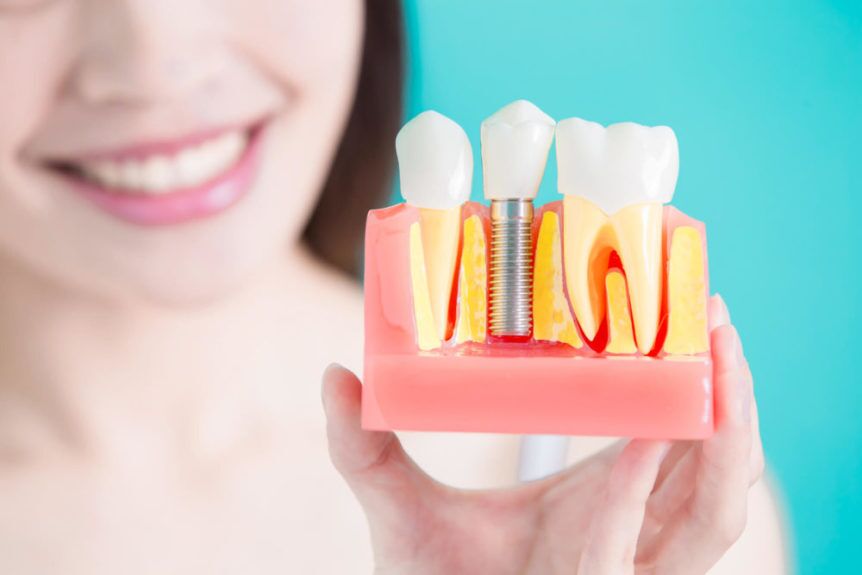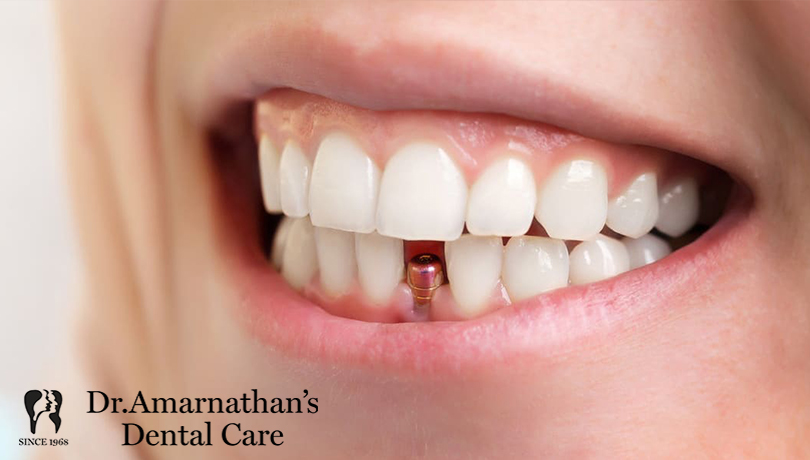How to Heal Faster After Dental Implants: – Follow your dentist’s post-operative care instructions and maintain good oral hygiene to speed up healing after dental implants. Avoid smoking, and stick to soft foods to prevent strain on the implant area.
Dental implant surgery is a significant procedure, and the recovery process is crucial for its success. Healing efficiently ensures the implant’s stability and longevity and reduces the risk of complications. Patients should prioritize rest and avoid any strenuous activities that could disrupt the surgical site.
Keeping the mouth clean with gentle brushing and using prescribed mouthwashes can prevent infections. Staying hydrated and maintaining a nutritious diet is essential to support the body’s healing mechanisms. By adhering to these steps, individuals can foster a quicker recovery and enjoy the benefits of their new dental implants sooner.
Introduction To Dental Implants

Credit: www.eaglerockdentalrexburg.com
Pre-surgical Preparation
Getting ready for dental implant surgery sets the stage for speedy recovery. Taking steps before surgery can make a big difference. Let’s dive into what you can do to prepare for the best outcome.
Optimizing Overall Health
Good health helps to heal. Before dental implant surgery, focus on being as healthy as possible. Check with your doctor. They might adjust medications. Quit smoking, as it slows healing. Limit alcohol, too. Get enough sleep and manage stress. These steps can boost your body’s ability to heal.
Dental And Nutritional Considerations
Healthy teeth and gums are critical. Visit your dentist for a check-up. They will make sure your mouth is ready for implants. Eat foods rich in vitamins and minerals. Vitamins A and C are great for healing. Steer clear of hard or sticky foods right before surgery. They can harm your teeth. Drink plenty of water to stay hydrated.
Immediately After Surgery

Credit: forestbrookdental.com
Dietary Guidelines For Healing
Dietary guidelines play a crucial role in healing after dental implants. The food you eat can either speed up your recovery or delay it. It’s critical to know what to eat and what not to eat.
Foods To Eat
Eating the right foods helps your body heal faster and more effectively:
- Soft fruits like bananas and applesauce are gentle on your mouth.
- Vegetable soups provide essential nutrients and are easy to consume.
- Scrambled eggs offer high-quality protein which aids in healing.
- Smoothies are nutritious and soothing for your mouth.
- Mashed potatoes are filling and low in acidity.
Foods To Avoid
Certain foods can disrupt the healing process and should be avoided:
- Crunchy snacks like chips can irritate the implant site.
- Sticky candies may pull at the implant area.
- Hard fruits like apples require biting, which can be harmful.
- Spicy foods can inflame the gums.
- Alcoholic beverages can slow down the healing process.
Oral Hygiene Practices
Keeping your mouth clean after getting dental implants is vital. Proper oral hygiene ensures quick healing and prevents infections. It’s essential to know the right way to care for your implants. This section will guide you through the best practices for maintaining oral hygiene after dental implant surgery.
Cleaning Around Dental Implants
After dental implant surgery, gentle cleaning is crucial. Start by using a soft-bristle toothbrush. This will protect your gums and the implant area. Brush twice daily to keep the area free of harmful bacteria. To avoid irritating the implant site, do not scrub it vigorously.
Tools And Techniques
- Use a soft toothbrush designed for sensitive areas.
- Interdental brushes reach between teeth and implants.
- Antimicrobial mouth rinses help reduce bacteria without harshness.
- Water flossers can be a gentle alternative to traditional floss.
- Non-abrasive toothpaste is gentle on implants.
Remember to replace your toothbrush every three months. This ensures bristles are adequate and clean. Your dentist may recommend specific products suited to dental implant care. Follow their advice closely for the best results.

Credit: www.dramarnathansdentalcare.com
Activity And Rest
After getting dental implants, your daily routine impacts healing. A proper balance between rest and physical activity is crucial. Your body needs energy to heal. Too much activity can slow down this process. Let’s explore how to manage activity and rest to heal faster.
Balancing Rest And Movement
Rest is vital after dental implant surgery. It helps your body repair. Stay relaxed and avoid strenuous work. Listen to your body. If you feel tired, take a break. Short walks are good. They boost circulation. This helps healing. Avoid heavy lifting and intense exercise for a while.
Physical Activity Guidelines
Your dentist will give you a recovery plan. This includes when to start exercises. Start with light activities. Gradually increase as you feel better. Avoid contact sports. They can harm your new implant. Follow these steps:
- Day 1-3: Rest, no heavy activity
- Day 4-7: Light walking, gentle jaw exercises
- Week 2: Increase walking time, add light household tasks
- Week 3 and beyond: Slowly return to regular exercise, as advised by your dentist
Remember, every patient is different. Your healing time may vary. Always check with your dentist before increasing activity. They know what’s best for your healing.
Monitoring Your Progress
Monitoring your progress is key to a swift recovery after dental implants. Keeping an eye on the healing process helps ensure everything is on track. Here are specific signs to watch for and scenarios for contacting your dentist.
Signs Of Healthy Healing
After getting dental implants, observing the right signs of healing is crucial. Here are a few indicators:
- Reduced swelling within a few days
- Minimal pain that decreases over time
- Incision site that looks clean and intact
- No excessive bleeding
- Gradual improvement in chewing and speaking
These signs suggest your body is accepting the implant well.
When To Contact Your Dentist
If you notice any of the following, reach out to your dentist immediately:
| Issue | Action |
|---|---|
| Persistent pain and swelling | Call your dentist |
| Bleeding that doesn’t stop | Call your dentist |
| Loose implant | Call your dentist |
| Signs of infection like pus | Call your dentist |
Timely communication with your dentist helps prevent complications.
Long-term Care And Maintenance
After dental implant surgery, proper care is crucial for quick healing. Long-term care and maintenance ensure your implants last a lifetime. Follow these tips and keep your smile bright.
Regular Dental Check-ups
Regular visits to your dentist are essential for implant health. They help catch issues early. Here’s what to expect:
- Professional Cleaning: Dentists remove plaque and tartar you can’t at home.
- Implant Inspection: They check for any signs of implant problems.
- Oral Health Assessment: They ensure your mouth stays healthy overall.
Tip: Schedule visits every six months or as advised by your dentist.
Lifestyle Adjustments For Longevity
Your daily habits can affect implant lifespan. Make these changes:
| Do’s | Don’ts |
|---|---|
| Quit smoking | Chew hard items |
| Use a soft-bristle brush | Ignore mouth pain |
| Eat balanced meals | Delay dental appointments |
Remember: Good habits protect your dental investment.
Frequently Asked Questions
How To Speed Up Dental Implant Recovery?
Follow your dentist’s aftercare instructions closely. Avoid smoking and strenuous activities. Stick to soft foods, maintain good oral hygiene, and use cold compresses to reduce swelling. Rest well and stay hydrated to promote healing.
How Long Does It Take To Heal From Dental Implants?
Healing from dental implants typically takes 4-6 months, but individual recovery times may vary.
How Do I Know If My Implants Are Healing Correctly?
Proper implant healing typically involves minimal swelling, reduced pain, and no signs of infection. Regular check-ups with your dentist ensure healing is on track.
What Are Dental Implant Healing Stages?
Dental implant healing stages include post-surgery inflammation, initial bone healing, osseointegration, where the implant fuses with the jawbone, and finally, attachment of the artificial tooth.
Conclusion
Recovering swiftly from dental implant surgery is crucial. Follow your dentist’s advice, maintain good oral hygiene, and prioritize rest. For any concerns, always consult your healthcare provider. By taking these steps, you can enhance your healing process and enjoy the benefits of your new smile sooner.

Hello there! I’m here to assist you with health tips and tricks. Whether you’re looking to boost your energy, improve your sleep, or enhance your overall well-being, I’m here to guide you with strategies and frameworks that can empower you to make positive changes.
First and foremost, it’s important to understand that health is a holistic concept encompassing various aspects of physical, mental, and emotional well-being.

